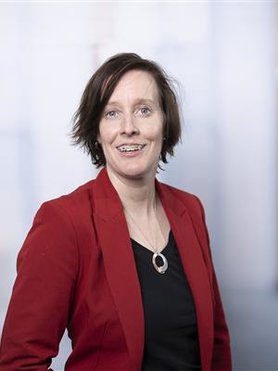

Dr. M. (Maaike) Snelder
Dr. M. (Maaike) Snelder
Profile
Maaike Snelder is associate professor at the Department of Transport and Planning, Civil Engineering at the Delft University of Technology and principal scientist at TNO. She is co-lead of the Sustainable Urban Multimodal Mobility Lab (SUM Lab) and Editor-in-Chief of the platinum open access European Journal of Transport and Infrastructure Research (EJTIR).
As co-director of the Sum Lab, Maaike is responsible for initiating collaborations with partners, acquiring and leading large research programs and supervising PhD students. Maaike was/is principal investigator in the NWO research programs XCARCITY (co-lead), SUMMALab, ToGRIP and STAD (co-lead) and lead scientist in several other large projects focusing on the development of a next generation of traffic and transport models and the development of interactive network design methods. She has supervised 10 PhD students and over 35 master students. She is the responsible teacher of the course Sustainable and Resilient Transport Systems and Networks, and she gives lectures in several other courses.
Her research focuses on impact assessment and design of multimodal transport systems with a special interest in the resilience of networks and the impact of new mobility concepts like automated vehicles and shared mobility. Maaike has a broad experience in the development and application of static and dynamic, strategic and real-time traffic transport models and optimization models for network design. For example, she developed the new mobility modeler to assess impacts of new mobility concepts, she developed an optimization and impact assessment model for robust road network design, she led a joint research project on activity based models, she oversaw the development of the first real-time waterway traffic model for the canals of Amsterdam and lead the development of prediction and smart routing models in the context of the ‘Praktijkproef’ (field trial) in Amsterdam. Maaike completed her PhD research about robust road network design in 2010 (Cum Laude) and completed her study Econometrics in 2003.
Publications
-
2023
Optimization of the location and capacity of shared multimodal mobility hubs to maximize travel utility in urban areas
Stavros Xanthopoulos / Marieke van der Tuin / Shadi Sharif Azadeh / Gonçalo Homem de Almeida Correia / Niels van Oort / Maaike Snelder
-
2023
A tour-based multimodal mode choice model for impact assessment of new mobility concepts and mobility as a service
H. Zhou / J. L. Dorsman / M. Mandjes / M. Snelder
-
2023
Sustainable mobility strategies and their impact
A case study using a multimodal activity based model
H. Zhou / J.L. Dorsman / M. Mandjes / M. Snelder -
2022
Accessibility of urban regions on a low car diet – A research agenda for digital twins
Bart van Arem / S. Sharif Azadeh / Maaike Snelder / Serge Hoogendoorn
-
2022
Estimating the Potential Modal Split of Any Future Mode Using Revealed Preference Data
G.K. de Clercq / A.J. van Binsbergen / B. van Arem / M. Snelder
-
Media
-
2024-01-11
Maaike Snelder in the media 2024
Appeared in: Vers Beton
-
2023-02-14
Maaike Snelder in de media 2023
Appeared in: iBestuur
-
2022-12-15
NWO-subsidie voor onderzoek naar leefbare stad zonder privéauto’s
Appeared in: TU Delft
Prizes
-
2015
Greenshields Prize 2015
This paper proposes a real time travel time prediction framework designed for large urban area including both arterial and urban roads. This framework makes it possible to test a wide variety of prediction models based either on theoretical or data-driven approaches. The results are demonstrated in a large test case corresponding to the Amsterdam Practical Trial. Data-driven approaches were then favor because their are easier to calibrate and require less computations. For short-term prediction, it appears that the simplest data driven approach (naive approach) performs the best. For larger-time window, a refined method (historic median prediction) provides the more accurate results. In most cases, the average absolute relative error is below 20%. The main contributions of this paper are (i) the formulation of the global framework and (ii) the extensive test of different methods on a large and heterogeneous operational test cases. The operational feedbacks from this study provide a good state of the art of the performance of data-driven methods in a mixed context and pave the way of further methodological developments
-
2013
European Excellence Award real time model for Canals Amsterdam
Smart city, smart canals
Ancillary activities
-
2024-04-17 - 2026-06-30
Consultancy / research and other